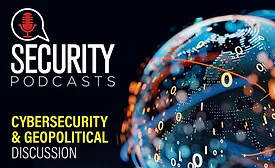Home » Keywords: » cryptocurrency
Items Tagged with 'cryptocurrency'
ARTICLES
Special Report
Jason Lau — Top Cybersecurity Leaders 2025
Cybersecurity endgame: Staying ahead of the attack
March 10, 2025
Cryptocurrency: The geopolitical and economic impacts
Check out episode 18 of The Cybersecurity & Geopolitical Discussion.
December 6, 2023
Sign-up to receive top management & result-driven techniques in the industry.
Join over 20,000+ industry leaders who receive our premium content.
SIGN UP TODAY!Copyright ©2026. All Rights Reserved BNP Media.
Design, CMS, Hosting & Web Development :: ePublishing













